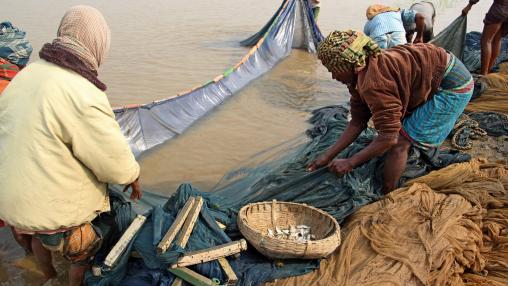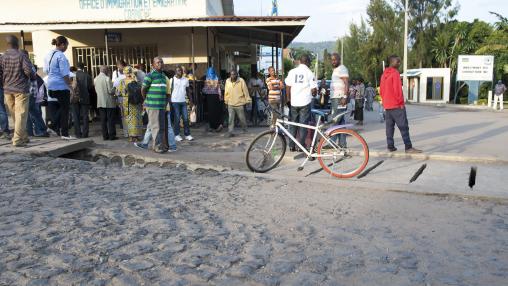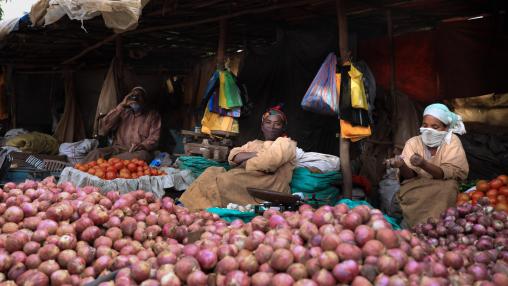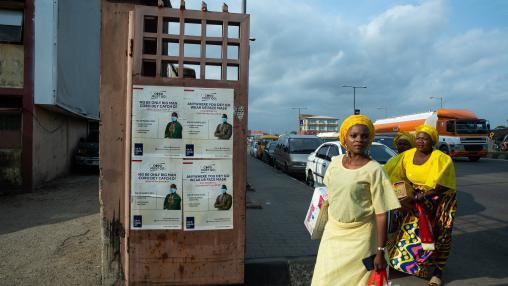
Impact of COVID-19 on National Food Systems
The CGIAR COVID-19 Hub has released updated policy notes regarding the impact of the COVID-19 pandemic on global and regional food systems. This latest series of updates covers several FSP priority countries, including Ethiopia, Nigeria, Malawi, and Bangladesh.

The impact of COVID-19 on free trade in Africa
As the world continues to grapple with the ongoing presence of COVID-19, it has become clear that the pandemic’s impacts extend far beyond human health. Economic growth, markets and supply chains, poverty, and food security have all experienced ripple effects from the pandemic itself and the measures taken to stop the spread of the deadly virus. In Africa, the outbreak of COVID-19 coincided with the signing of the African Continental Free Trade Area (AfCFTA), leading to concerns about the potential negative impacts on free trade targets in the region.

Acute Food Insecurity Spreads Across Africa: 2021 Global Report on Food Crises
The number of people around the world facing severe food insecurity skyrocketed by 20 million in 2020, according to the 2021 Global Report on Food Crises, released earlier this month. Acute food insecurity now affects at least 155 million people across 55 countries/territories, with some regions facing famine-level hunger.

Policy responses to COVID-19: What worked and how to build resilience for the future
The COVID-19 pandemic has presented countries with enormous policy challenges. Policymakers have had to balance limited resources between health, food systems, and economies in a continually evolving public health emergency and an associated recession. Low-income countries have faced especially difficult choices because of their limited budgets and administrative capacity.
Trial, error and success: Learning from twenty years of voucher interventions for agriculture in Mozambique
This webinar will look at the past and present experiences from Mozambique, where the Food and Agriculture Organization of the United Nations (FAO) has been implementing voucher interventions over the past 20 years. The event will provide an opportunity to discuss issues as diverse as food security, market development, dissemination of new seed varieties and FAO technological innovation, and will also allow our speakers to reflect on the way forward.
Join us to find out more about what FAO has been learning in Mozambique throughout the years.
Speakers:
Malawi Discussion of IFPRI’s 2021 Global Food Policy Report: Transforming Food Systems After COVID-19
In the 2021 Global Food Policy Report, IFPRI researchers and experts explore the impacts of the pandemic and government policy responses to date, particularly for the poor and disadvantaged, and consider what it all means for transforming our food systems to be healthy, resilient, efficient, sustainable, and inclusive.

Food systems approach critical to COVID-19 recovery
While Africa south of the Sahara has largely avoided severe health impacts of the COVID-19 pandemic (fewer than 5 percent of globally confirmed cases and approximately 89,000 COVID-related deaths), the region is experiencing economic fallout due to national and global pandemic policy responses. Economic growth, value chain functioning, incomes, trade, poverty, and consumption have all been negatively affected, according to IFPRI’s 2021 Global Food Policy Report.

How should we measure food security during crises? The case of Nigeria
High-frequency monitoring of access to food has become especially important during the recent COVID-19 pandemic. Food access in Nigeria, and across the globe, has significantly worsened since the start of the pandemic due to significant disruptions to food supply chains and widespread loss of income. Poor access to food can have both short- and long-term impacts on health and wellbeing and is thus an important targeting criteria.
Africa COVID-19 Food Price Media Analysis
While the impact of rising food prices may be clear, the root causes of such price increases often are not. The role of various short- and long-term factors, such as the growth of commodities futures markets and changing levels of grain stocks, continues to be debated. This tool generates up-to-date media daily analysis of factors that may influence commodity price volatility and food security related to COVID-19.
COVID-19 in Africa
The COVID-19 pandemic has serious potential negative impacts on food security and nutrition, livelihoods and incomes, and poverty all over the world.